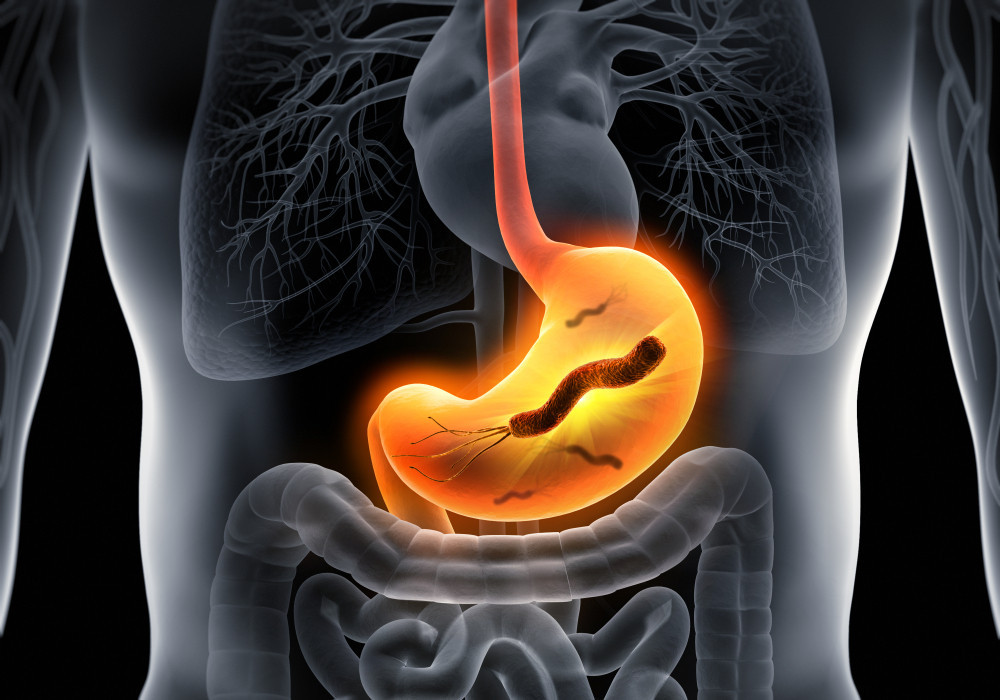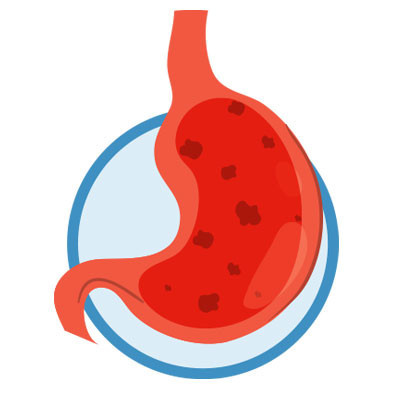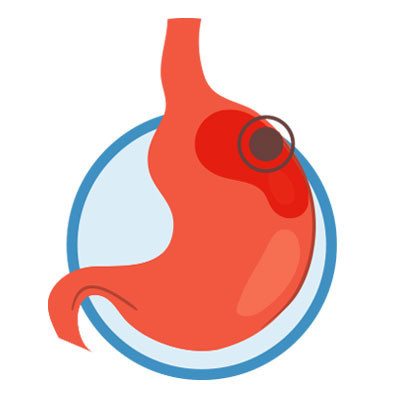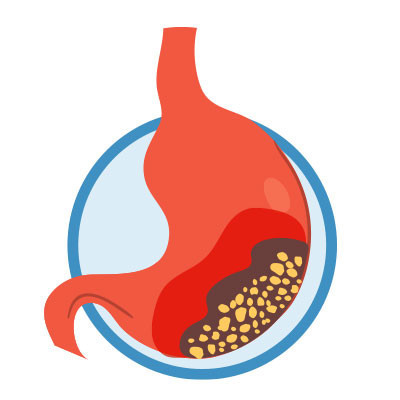Helicobacter. pylori Infection

Helicobacter Pylori Infections: Causes, Symptoms and Treatment
City dwellers often experience symptoms such as stomach bloating, abdominal pain, and frequent burping after meals. Don’t consider it a minor problem, as it could be caused by the notorious Helibactor. pylori (H.pylori). Ignoring it can potentially lead to the development of stomach cancer. In fact, a simple breath test can detect the presence of H. pylori. The disease can be effectively cured by undergoing medication treatment, allowing you to say goodbye to stomach discomfort.
What is H. pylori?
H. pylori is a type of bacteria that resides in the gastric mucosa, with a preference for the acidic environment of the stomach’s mucus or within the cells of the gastric mucosa. It can also be found in the oral cavity. H. pylori infection can cause stomach pain and contribute to the development of gastritis, gastric ulcers, duodenal ulcers, and even increase the risk of stomach cancer. Globally, approximately 4.4 billion people are infected with H.pylori, which can lead to digestive ulcers and potentially stomach cancer. In Asia, over half of the population is infected, while in Hong Kong, around 30% to 40$ of adults are carriers of the bacteria.

What are the transmission routes of H. pylori?
Experts have not reached a definitive conclusion on the causes and transmission routes of Helicobacter pylori infection. However, it is speculated that individuals may become infected through the following routes:
- Contact with the saliva of carriers (e.g., kissing or sharing food).
- Contact with the vomit or faeces of carriers.
- Consumption of contaminated food.
- Drinking contaminated water.
It is important to note that Helicobacter pylori is highly contagious, and individuals living with carriers have a chance of mutually infecting each other. If one family member is diagnosed with Helicobacter pylori infection, there is a 68% chance that their partner will also be infected and a 40% chance for their children. Therefore, family members of the infected individual should also undergo Helicobacter pylori testing to prevent cross-infection.

What are the symptoms of H.pylori infection?
Most individuals infected with Helicobacter pylori do not experience immediate symptoms and may remain unaware of the infection for many years. However, if gastritis, gastric ulcers, or duodenal ulcers develop, symptoms such as upper abdominal bloating, discomfort, excessive burping, loss of appetite, and nausea may occur. In severe cases, individuals may experience symptoms such as vomiting blood, bloody stools, or even anaemia.
If Helicobacter pylori infection is not promptly treated and controlled, it can lead to severe complications.
 Gastritis | Chronic infection with H. pylori can result in gastritis, which refers to the localized inflammation of the gastric mucosa. |
 Gastric and duodenal ulcers | H. pylori can disrupt the protective layer of the stomach and small intestine, leading to the direct damage of the stomach lining by stomach acid, which can result in the formation of ulcers. Research indicates that approximately 10% of patients with Helicobacter pylori infection will develop ulcers. If the condition worsens, it can lead to complications such as bleeding or perforation. |
 Stomach cancer | H. pylori has been classified as a Group 1 carcinogen by the International Agency for Research on Cancer. Persistent infection with Helicobacter pylori can cause pathological alterations in the gastric mucosa, ultimately leading to the development of gastric cancer. |
How is H.pylori infection diagnosed?
Gastroscopy
It is an invasive procedure where a doctor uses an endoscope to examine the stomach and collect tissue samples for testing. The collected samples can be subjected to rapid urease tests (e.g., CLO test) or bacterial culture. Gastroscopy is highly accurate and provides the opportunity to assess the overall health of the stomach and duodenum. If there are symptoms of gastric disorders like stomach pain, gastrointestinal bleeding, or loss of appetite, it is advisable to undergo a gastroscopy examination.
Learn more about Gastroscopy
H. pylori breath test / Carbon-13 urea breath test
The breath test is conducted to determine the presence of carbon dioxide produced when Helicobacter pylori breaks down urea in the oral cavity. This test helps in detecting the presence of Helicobacter pylori infection. The Helicobacter pylori breath test is highly accurate and non-invasive. However, it is not suitable for diagnosing other gastric or duodenal diseases. Therefore, it is not recommended for patients who already have symptoms.
Learn more about H. pylori breath test
Stool antigen test
The stool antigen test uses the enzyme-linked immunosorbent assay (ELISA) to detect the presence of Helicobacter pylori antigens in the stool. However, its accuracy is slightly lower compared to the breath test.
Blood test
The blood test is primarily used to measure the levels of IgG antibodies in the bloodstream, which can indicate the presence of Helicobacter pylori antibodies in the body. However, its accuracy is relatively lower than other diagnostic methods, so it is less commonly used to diagnose H. pylori infection.
Treatment of Helicobacter pylori infection
If an H.pylori infection is confirmed, especially if accompanied by gastric discomfort such as gastritis or gastric ulcers, it is crucial to initiate treatment promptly. Currently, the recommended first-line treatment for Helicobacter pylori infection is triple therapy, which involves a proton pump inhibitor (PPI) along with two different antibiotics. The treatment duration typically lasts 7 to 14 days, with a cure rate of up to 90%. After completing the treatment course, patients should undergo a Helicobacter pylori breath test again after six weeks to ensure complete eradication of the bacteria. It's important to note that antibiotic therapy may lead to mild side effects like gastrointestinal discomfort, nausea, diarrhea, and headaches.
Our Team
Virtus Gastroenterology and Hepatology Specialist
More:
-
Specialty Services - Gastroenterology and Hepatology